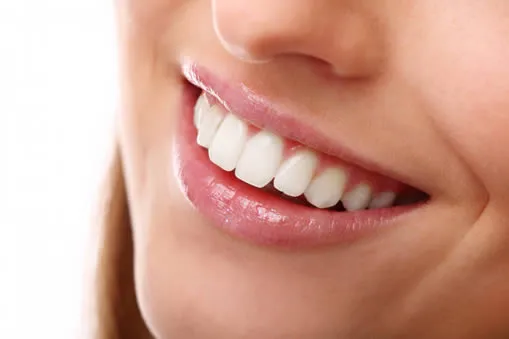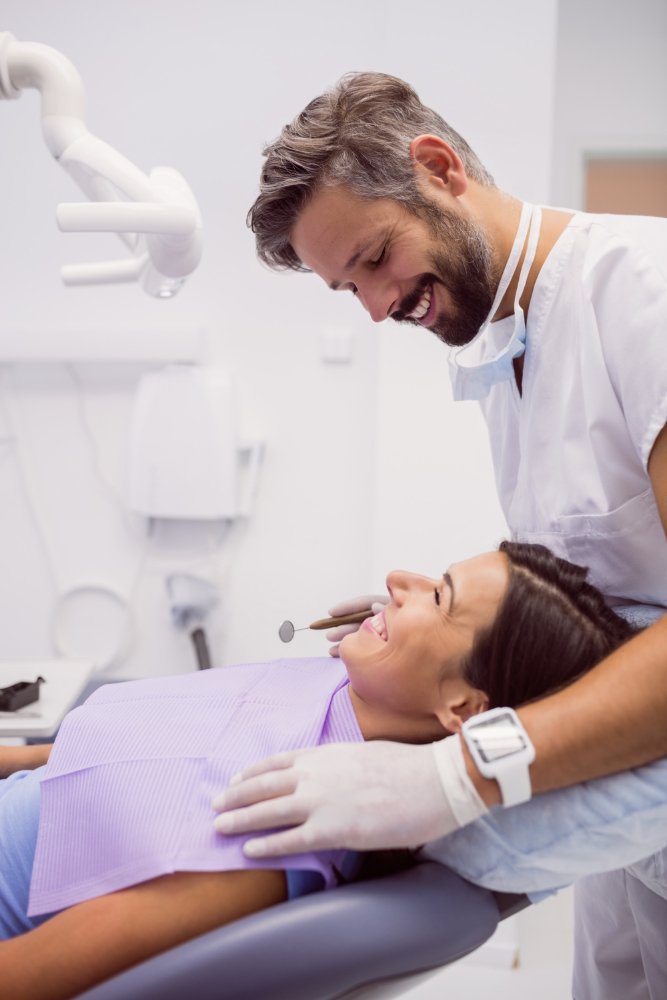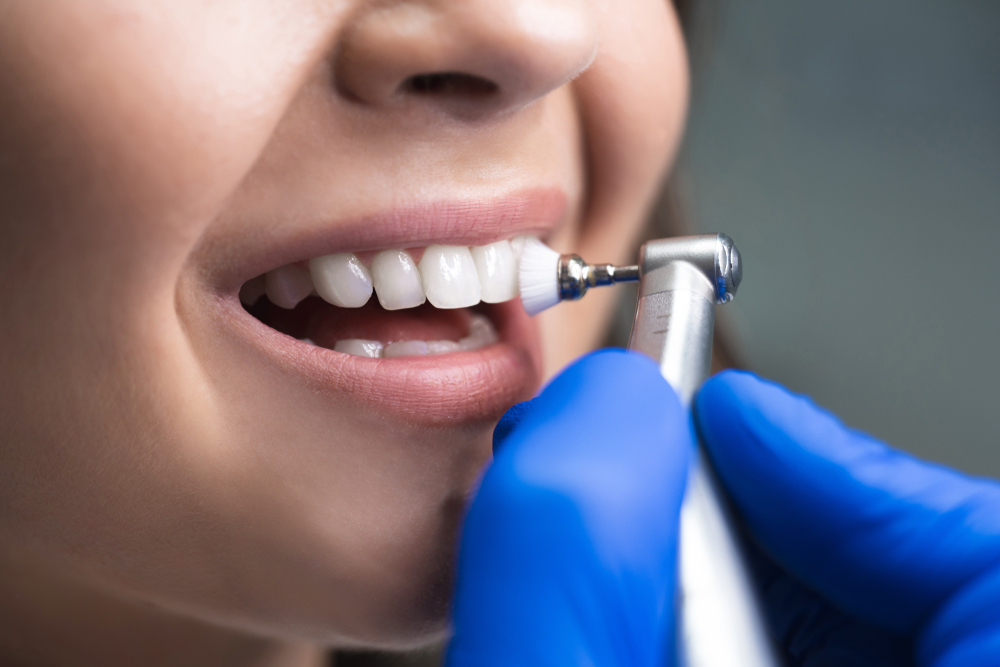One of the most important aspects of maintaining a healthy smile is through regular dental cleanings. While brushing and flossing at home are essential, professional dental cleanings take it to the next level. Our team at Charlottesville Dental Care in Charlottesville is committed to ensuring that every patient receives a thorough cleaning that not only leaves their teeth sparkling clean but also prevents the development of dental issues down the line.
Dental cleanings Charlottesville
Dental cleanings are an essential part of maintaining good oral health. The procedure involves the removal of dental plaque and tartar from the teeth, which are both detrimental to dental health. Dental plaque is a sticky film that forms on the teeth due to bacteria build-up. If left untreated, it can lead to cavities, gingivitis, and gum disease. Tartar or calculus is a hardened form of dental plaque that forms when the plaque is not removed by regular brushing and flossing.
Regular dental cleanings help prevent the development of gum disease and tooth loss. In severe cases, gum disease can lead to tooth loss, which can be a severe blow to one’s confidence and quality of life.
After the larger pieces of tartar have been removed, hand tools called scalers and curettes are used to manually remove smaller deposits and smooth the tooth surfaces. These tools are curved and shaped to match the curves of the teeth, allowing for precise cleaning.
Once all the tartar and plaque have been removed, the teeth are polished using a slow speed hand piece with a soft rubber cup that spins on the end. A special gritty toothpaste-like material called prophylaxis paste is applied to the teeth to make them shiny and smooth. This process also removes any surface stains, resulting in a brighter smile.
During the dental cleaning, the dental hygienist will also use a piece of dental floss to clean between the teeth, removing any debris that may have been trapped.
Fluoride treatment may also be administered to help strengthen the tooth enamel. The fluoride may come in the form of gel, foam or varnish. This treatment can help prevent tooth decay by making the teeth more resistant to acid attacks from plaque bacteria and sugars in the mouth.
Your dental health is important to us at Charlottesville Dental Care. Call us to schedule your appointment today.
What is dental plaque?
Dental plaque is a soft, sticky, and colorless film that forms on teeth and is caused by the buildup of bacteria in the mouth. It is a common dental problem that affects people of all ages and can lead to serious dental issues if left untreated.
Dental plaque forms when food particles and saliva combine in the mouth to create a breeding ground for bacteria. The bacteria then attach themselves to the surface of teeth and begin to multiply, forming a thin film known as dental plaque. Over time, this plaque can harden and become tartar, which is more difficult to remove.
If left untreated, dental plaque can lead to a host of dental problems, including tooth decay, gum disease, and bad breath. Tooth decay occurs when the bacteria in plaque produce acid that erodes the enamel of the teeth, leading to cavities. Gum disease, on the other hand, occurs when plaque buildup leads to inflammation and infection of the gums, which can cause bleeding, swelling, and even tooth loss.
Bad breath, or halitosis, can also be a result of untreated dental plaque. The bacteria in plaque produce an unpleasant odor that can be difficult to mask with mouthwash or chewing gum.
To prevent the buildup of dental plaque, it is essential to practice good oral hygiene by brushing your teeth at least twice a day with fluoride toothpaste, flossing daily, and visiting your dentist regularly for cleanings and checkups. Contact our office today to schedule a dental cleaning with our dental hygienist at Charlottesville Dental Care. We look forward to seeing you.
What periodontal therapy or deep dental cleaning?
Periodontal therapy, also known as a deep cleaning or scaling and root planing, is a non-surgical treatment for gum disease. This procedure is typically recommended for patients who have advanced periodontitis or those who have not responded well to routine dental cleanings.
During a deep cleaning, your dental hygienist or dentist will use special instruments to remove plaque and tartar from above and below the gum line. This process is usually performed under local anesthesia to ensure your comfort.
The first step of the procedure is scaling, where the hygienist will use an ultrasonic scaler to remove plaque and tartar from the teeth and roots. Next, they will use hand instruments called curettes to carefully clean any remaining debris from the tooth surfaces and roots.
The second step is root planing, where the root surfaces of the teeth are smoothed to remove any rough spots or bacterial deposits. This helps to prevent further buildup of bacteria and plaque, and promotes healthy gum tissue growth.
Periodontal therapy is an effective way to treat gum disease and prevent tooth loss. Our dentist or hygienist may recommend additional follow-up appointments to monitor your progress and ensure the success of the treatment.
If you are experiencing signs of advanced periodontitis, schedule a consultation today at our Charlottesville dental office to determine the right course of treatment.
What is periodontal charting?
Periodontal charting is an important diagnostic tool that dentists use to evaluate the health of your gums and diagnose gum disease. During a periodontal charting, your dentist or hygienist will examine your gums for signs of inflammation, recession, and pocketing, which are all indicators of gum disease.
To perform a periodontal charting, your dentist or hygienist will use a special probe to measure the depth of the pockets between your teeth and gums. Pockets deeper than three millimeters may indicate gum disease, as they provide a space for bacteria to thrive and cause damage to the tooth roots and supporting bone.
Your dentist or hygienist will also evaluate the color and texture of your gums, looking for signs of redness, swelling, or bleeding, which are all common symptoms of gum disease.
Periodontal charting is a painless and non-invasive procedure that can help to identify gum disease in its early stages, before it causes permanent damage to your teeth and gums. If you are at risk for gum disease, your dentist may recommend periodontal charting as part of your routine dental exam.
Contact our office today to schedule a consultation. We can answer any question you have about dental cleanings and address any issues unique to your specific situation. We look forward to seeing you.
What is an ultrasonic scaler?
The ultrasonic scaler tool used by dentists is a specialized dental instrument that emits high-frequency vibrations to remove tartar and plaque from the teeth. It is also known as an ultrasonic scaler or ultrasonic cleaner.
The ultrasonic scaler consists of a handpiece with a small, curved metal tip that vibrates at a very high frequency, typically between 25,000 and 50,000 Hz. When the tip of the tool comes into contact with the surface of the teeth, it creates tiny bubbles in the water that surrounds it. The bubbles implode and produce a powerful shockwave that helps to loosen and remove tartar and plaque.
The ultrasonic scaler is used during routine dental cleanings to remove large deposits of tartar and plaque from the teeth. It can also be used for periodontal scaling and root planing procedures, which are more advanced forms of dental cleaning that involve the removal of tartar and plaque from below the gum line.
One advantage of using the ultrasonic tool is that it is more efficient than traditional hand-scaling methods. It can remove tartar and plaque more quickly and effectively, which means that dental appointments can be completed more efficiently. It also causes less discomfort for the patient, as the vibrations of the tool can help to numb the area being cleaned.
Call us to schedule your dental cleaning with Charlottesville Dental Care today!
What is prophylaxis paste?
The paste that a dental hygienist uses to clean teeth during a dental cleaning is called prophylaxis paste. It is a special type of gritty toothpaste-like material that is designed to clean and polish the teeth.
Prophylaxis paste contains a fine abrasive material, such as silica, that helps to remove surface stains and plaque from the teeth. It also contains fluoride, which helps to strengthen the tooth enamel and prevent cavities.
During a dental cleaning, the dental hygienist will apply the prophylaxis paste to a small, soft rubber cup that is attached to a slow-speed handpiece. The rubber cup spins on the end of the handpiece and gently scrubs the paste onto the surface of the teeth.
The dental hygienist will use the prophylaxis paste to polish all surfaces of the teeth, including the front, back, and chewing surfaces. The polishing process helps to remove any remaining plaque and stains from the teeth, leaving them shiny and smooth.
After the teeth have been polished with the prophylaxis paste, the dental hygienist may apply a fluoride treatment to the teeth. The fluoride treatment helps to strengthen the tooth enamel and protect against cavities.
ADDITIONAL FREQUENTLY ASKED QUESTIONS ABOUT DENTAL CLEANINGS
How often should I get a dental cleaning?
It’s recommended to get a dental cleaning every six months to prevent cavities, gum disease, and other dental problems.
Can dental cleanings prevent bad breath?
Yes, dental cleanings can help to prevent bad breath by removing bacteria and food particles that can cause odors in the mouth.
Can dental cleanings remove stains from my teeth?
Yes, dental cleanings can help to remove surface stains from your teeth. However, deeper stains may require additional treatment, such as teeth whitening.
Can dental cleanings cause damage to my teeth or gums?
No, dental cleanings are safe and non-invasive. However, if you have sensitive teeth or gums, your dentist or hygienist may take special precautions to ensure your comfort.
Is there a dentist near me in Charlottesville that offers dental cleanings?
Yes. At our Charlottesville dental office we offer dental cleanings to patients from Charlottesville and the surrounding area. Contact our office today to schedule an appointment.



